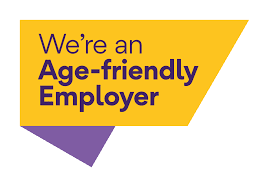Employers’ increased concern for people’s mental health during COVID-19
We know that employers and employees are under immense pressure and mental health concerns are increasing, CIPD have recently conducted a survey in respect of this which has seen the following. Almost nine in ten (88%) employers are concerned about the impact the COVID-19 pandemic could have on employees’ mental health, according to a survey of over 1,000 employers carried out in April by YouGov on behalf of the CIPD. A quarter (25%) of these organisations said they were ‘very concerned’.
When asked in more detail about mental health issues, ‘fear and anxiety about themselves or loved ones becoming ill’
was the most common concern reported by employees in these organisations, with half (50%) of employers citing this one in their top three. The ‘negative impact of isolation and lonelinesss’ on people’s mental wellbeing emerged as the second key concern. When asked about the main challenges posed to the organisation by increased homeworking, 37% cited the ‘reduced mental wellbeing of staff due to isolation.’
Prior to the pandemic we know that mental ill health was a serious concern with three-fifths (60 per cent) of organisations reporting an increase in common mental health conditions (such as anxiety and depression) among employees in 2019. The pandemic will exacerbate these conditions for many and is another reason for employers to seriously step up their efforts.
Health and well-being support is a top priority
In a survey conducted by CIPD in April they asked respondents whether their organisations’ HR priorities had changed since the COVID-19 pandemic. When asked about their top three HR priorities, it’s reassuring that employee ‘health and wellbeing’ has become the top priority for many more employers since the onset of the pandemic. Now, two-thirds (65%) say this is a high priority compared with just over one-third (37%) before the health crisis.
Managers need ongoing advice and guidance
Increasing responsibility is now placed on line managers to support people’s mental wellbeing. Managers should not be expected to be health experts but they do need to recognise the value of health and wellbeing at work, be able to spot early warning signs of ill health, have the competence and confidence to have sensitive conversations, and direct employees to appropriate sources of help.
Some of the ways that employers can support their Managers are by;
- support and guide line managers so that they feel equipped to have sensitive and supportive discussions with staff
- remind managers about the importance of communicating regularly with their team and asking how they are.
- encourage staff to practise self-care such as a healthy routine for diet, sleep and relaxation
- promote existing health and wellbeing benefits and support, for example signposting people to their counselling helpline.
It is encouraging to see that more employers are supporting their Managers and staff. The role and skills of the Manager need to be much more focused in terms of communication and engagement with their teams especially as more people are working remotely.
by Melissa Baxter

Contact us
Call us on 07930 356305 or email HQ@russam.co.uk








